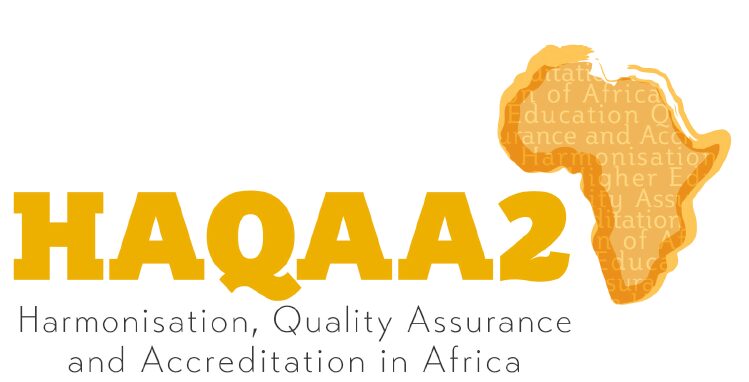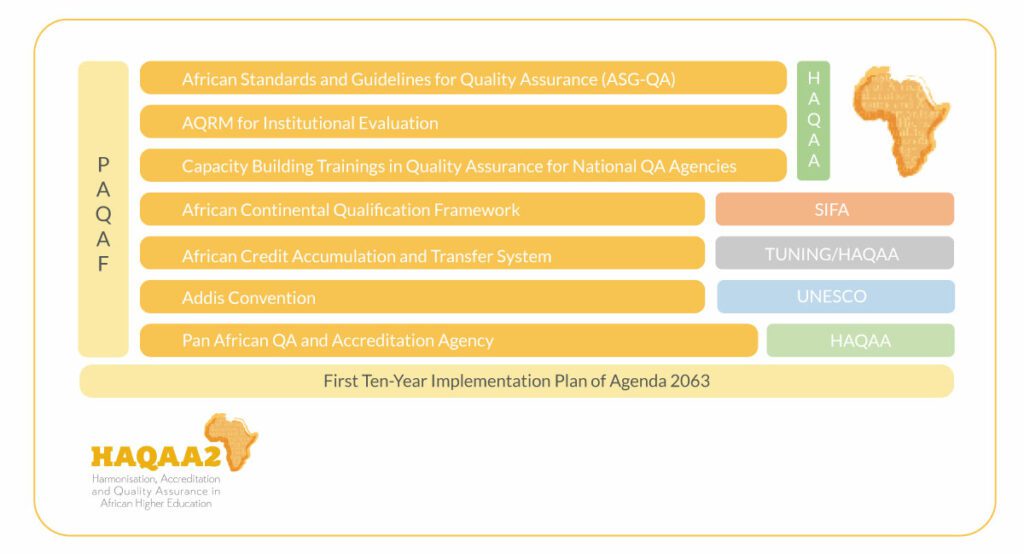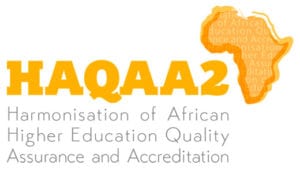About the haqaa initiative
Harmonisation, Quality Assurance and Accreditation of African Higher Education (HAQAA) supports the development of a harmonised quality assurance and accreditation system at institutional, national, regional and Pan-African continental level. It is funded by the European Union Commission, in the context of the Africa-EU Strategic Partnership.
The Initiative has seen two Phases: HAQAA1 implemented from 2016-2018, and HAQAA2, implemented from 2019 – 2022). The objective of HAQAA2 was to build upon, upscale and promote the results of HAQAA1, and to further support African higher education integration and the Continental Education Strategy for Africa (CESA).
Harmonisation, Quality Assurance and Accreditation of African Higher Education (HAQAA) supports the development of a harmonised quality assurance and accreditation system at institutional, national, regional and Pan-African continental level. It is funded by the European Union Commission, in the context of the Africa-EU Strategic Partnership.
The Initiative has seen two Phases: HAQAA1 implemented from 2016-2018, and HAQAA2, implemented from 2019 – 2022). The objective of HAQAA2 was to build upon, upscale and promote the results of HAQAA1, and to further support African higher education integration and the Continental Education Strategy for Africa (CESA).












